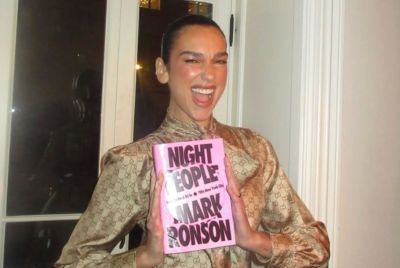'Call Him What He Is': Hayley Williams Brands Morgan Wallen a Racist In Explosive Music Row
Hayley Williams said the lyric about a 'racist country singer' refers to Morgan Wallen, reopening scrutiny of his 2021 racial-slur controversy

Hayley Williams has publicly named Morgan Wallen as the 'racist country singer' she calls out in her new song, saying she will 'call him what he is'.
Williams made the declaration during a wide-ranging interview on Popcast, the New York Times music podcast, when asked whether the pointed lyric in the title track of her solo release Ego Death at a Bachelorette Party referred to an individual.
She answered without hesitation, identifying Morgan Wallen and adding that she 'doesn't give a s—' about the backlash. The remark immediately reopened a debate about accountability in country music that intensified after a 2021 video showed Wallen using a racial slur.
Popcast Interview: Williams Names Wallen
In the interview released on 1 October 2025, Williams discussed the genesis of the album and the lyric that sparked attention — 'I'll be the biggest star / at this racist country singer's bar' — and when pressed to 'name names' she singled out Wallen, adding an expletive-laced flourish that left no room for ambiguity.
The conversation is available in full via the New York Times Popcast listing and in shorter video clips circulating on video platforms. Williams framed the line as part of a broader critique of Nashville's culture and the way racial politics and commercial music spaces intersect.
Williams has been explicit for months in her songwriting about Southern histories and racism; the lyric functions as both a personal rebuke and a public provocation. The official video and audio for 'Ego Death at a Bachelorette Party' foregrounds those scenes of Nashville and the lyric itself, which fans and critics quickly connected to Wallen's publicly documented controversies.
The record's bluntness and Williams's willingness to name a contemporary peer have sharpened debate among musicians, journalists, and fans about what public accountability should look like.
The 2021 Incident and Wallen's Response
Morgan Wallen's public fallibility stems from a video published in early February 2021 that showed the singer using the N-word during an off-camera exchange; the footage was widely shared and led to swift repercussions across radio, streaming playlists, and industry ceremonies.
Wallen subsequently issued public apologies and posted a video statement on his social channels in which he described his behaviour as 'inexcusable' and said he would 'go off the grid' to reflect and learn. The episode remained a fulcrum in discussions about systemic racism in country music and the limits of celebrity contrition.

Industry actors responded at the time with sanctions: radio networks and streaming curators temporarily removed him from some playlists, and his label paused aspects of promotion. Yet Wallen's commercial fortunes proved resilient, and he later returned to high ticket sales and chart success, prompting critics to ask whether consequences had been sufficient or sustained.
Williams's renewed naming of Wallen therefore re-ignites questions about whether merely issuing apologies and meeting with leaders is an adequate response to public racist conduct.
What the Naming Means for Music and Accountability
Williams's decision to call Wallen out explicitly does more than settle songwriter curiosity; it tests the boundaries of public naming in a music culture that has historically papered over certain behaviours for the sake of commerce.
Artists from multiple genres have wrestled with whether to call out colleagues and how to translate moral outrage into durable institutional change; Williams's claim adds a prominent voice from the alternative/rock sphere into the country-music conversation.
Observers note that naming a figure with Wallen's mass appeal invites both artistic solidarity and pointed backlash, and it forces venues, promoters, and fans to consider the ethical implications of where they spend their attention and money.

Some in Nashville view Williams's remarks as part of a long, necessary reckoning; others see the gesture as performative if not accompanied by structured demands for reform. What remains undeniable is that Williams has elected to move the discussion from lyricism to the ledger of public accountability, directly associating a line of her music with a living artist's documented past.
Hayley Williams's naming of Morgan Wallen is a deliberate, public escalation, and whether it prompts durable change in country music or becomes another momentary scandal depends on how the industry and audiences choose to respond.
© Copyright IBTimes 2025. All rights reserved.




















